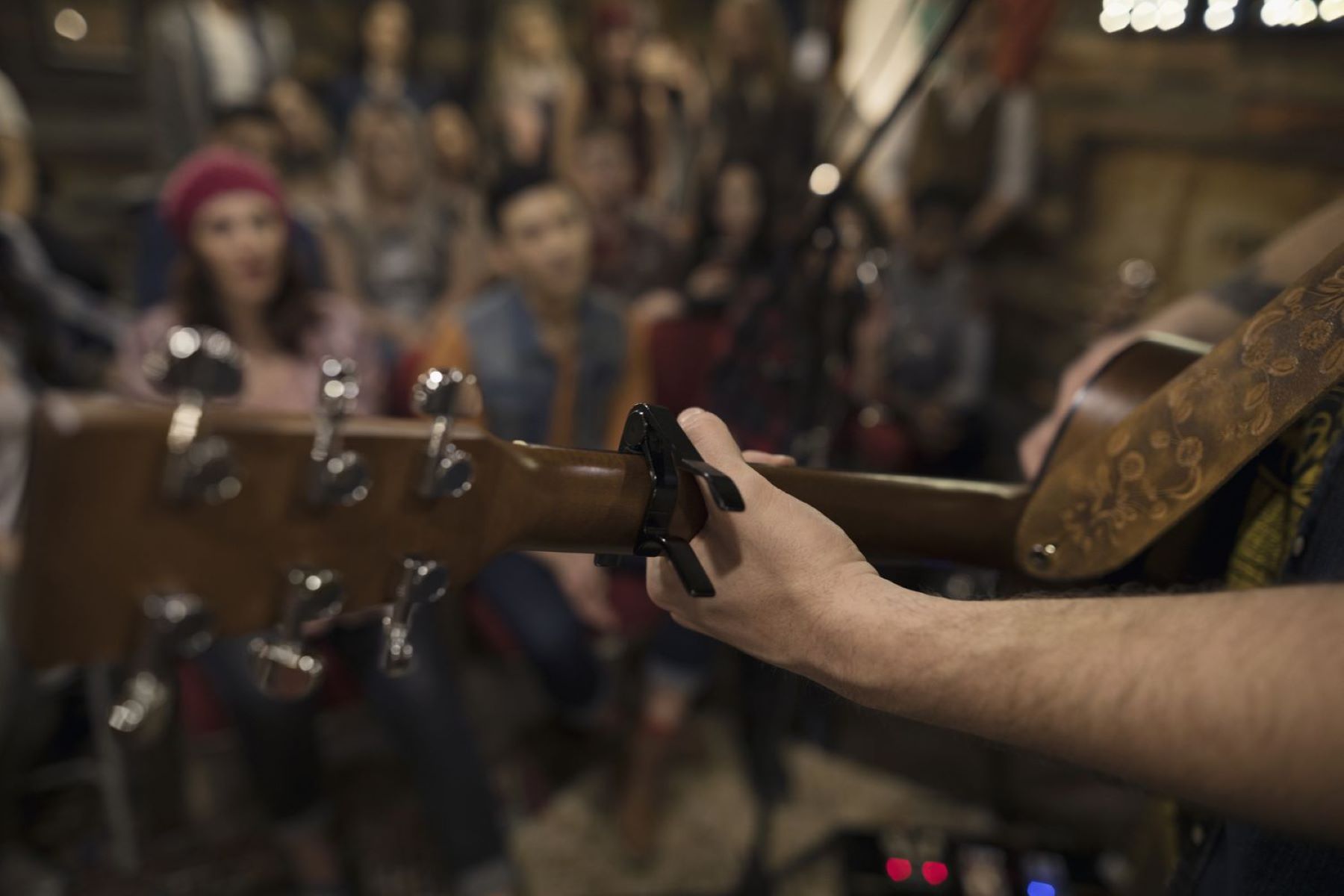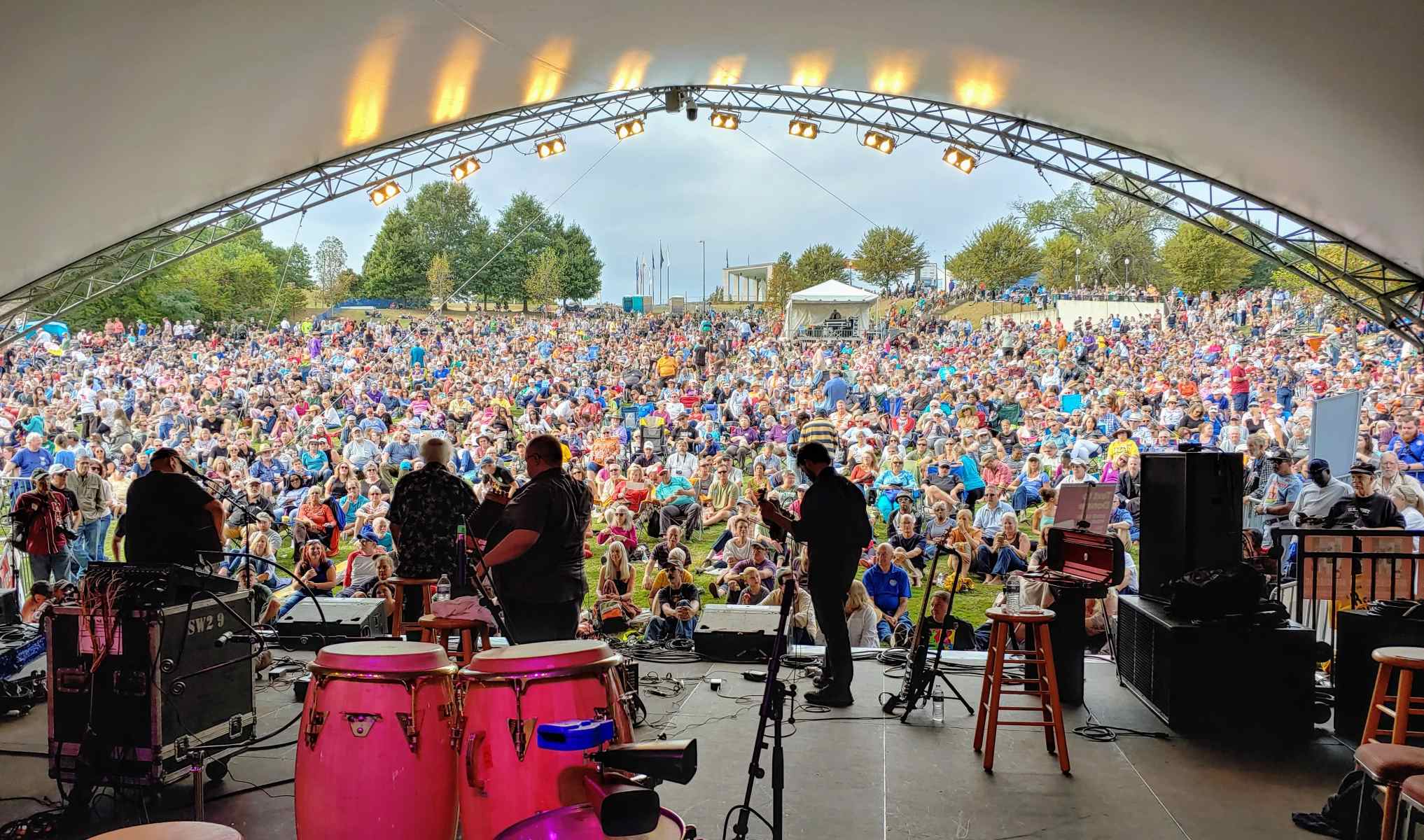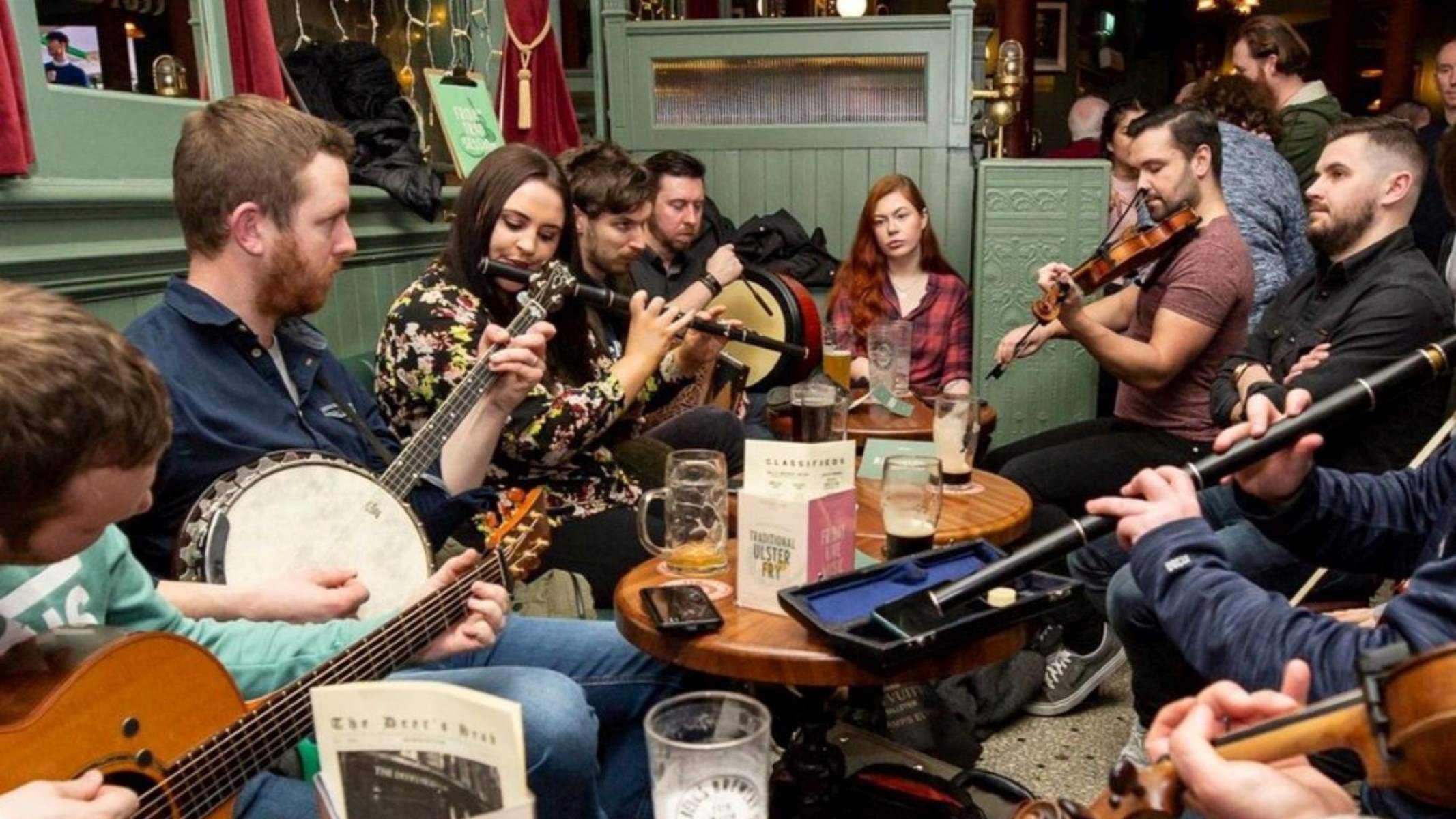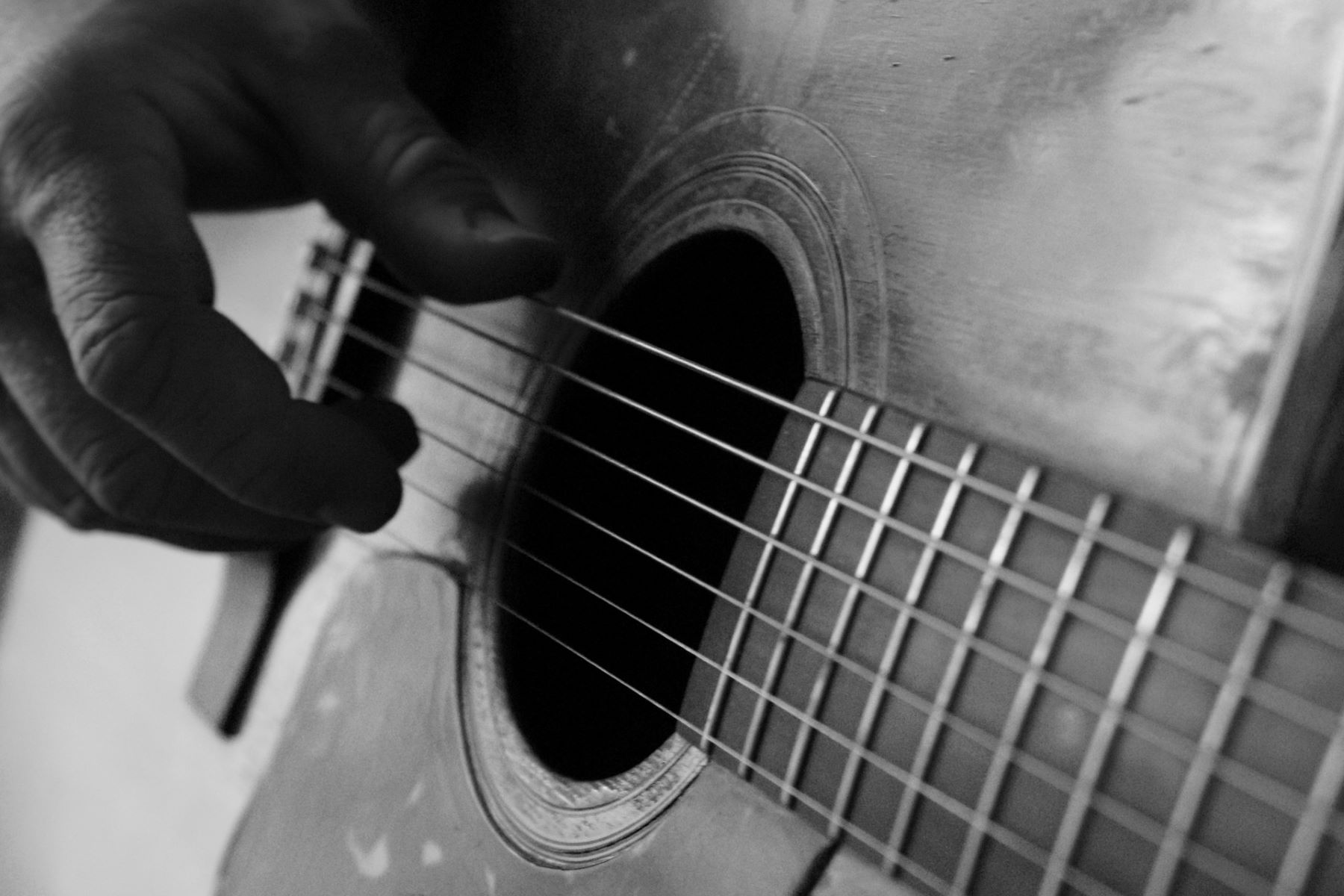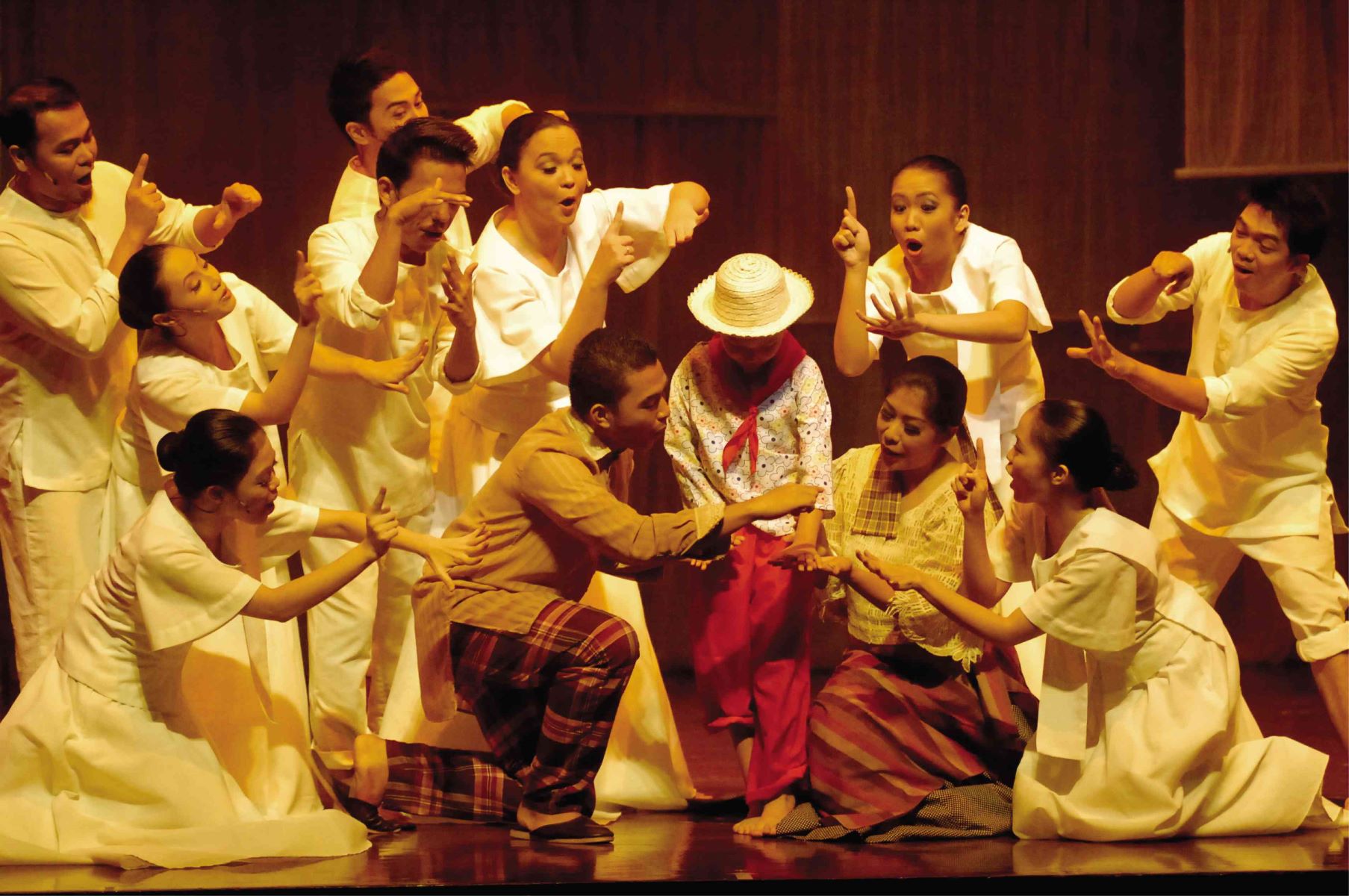Home>Genres>Folk>What Folk Singer Was Idolized By Bob Dylan?
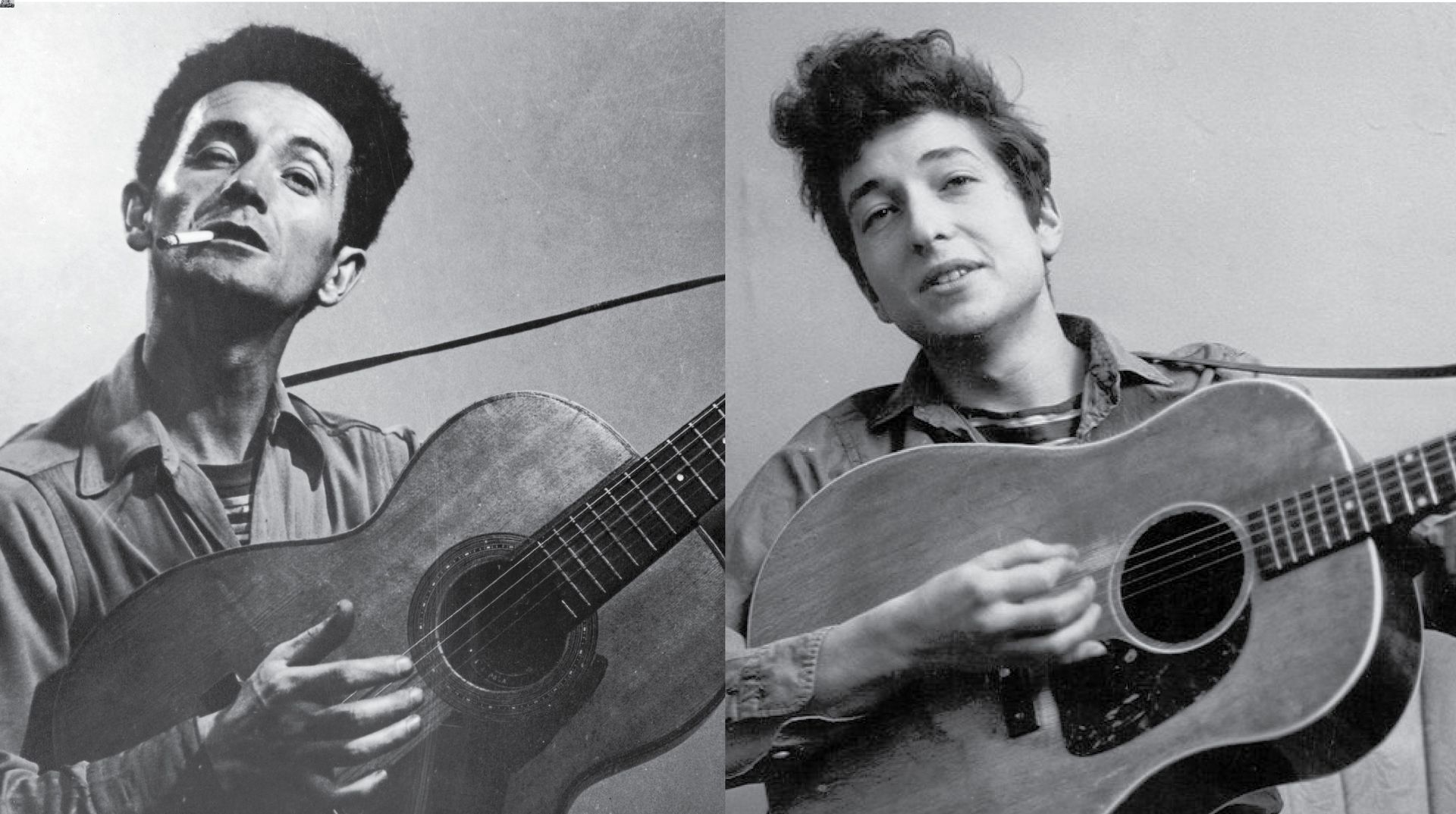

Folk
What Folk Singer Was Idolized By Bob Dylan?
Modified: January 28, 2024
Discover the legendary folk singer idolized by Bob Dylan and celebrate the rich history of the folk genre. Explore the impact and influence of this iconic figure.
(Many of the links in this article redirect to a specific reviewed product. Your purchase of these products through affiliate links helps to generate commission for AudioLover.com, at no extra cost. Learn more)
Table of Contents
Introduction
Bob Dylan, one of the most influential musicians of the 20th century, is known for his unique blend of folk, rock, and protest music. His poetic lyrics and distinctive voice captivated audiences around the world and earned him a loyal fanbase. But who was the folk singer that Dylan idolized and drew inspiration from? In this article, we delve into the early influences on Bob Dylan and explore the folk singer who played a pivotal role in shaping Dylan’s musical career.
From an early age, Bob Dylan developed a deep passion for folk music. Growing up in Minnesota, he was exposed to the sounds of traditional folk songs, country blues, and gospel music. These early influences laid the foundation for Dylan’s songwriting and provided a rich tapestry of musical inspiration.
As Dylan began to delve further into the world of folk music, he quickly became enamored with a particular folk singer who would go on to greatly influence his own musical journey. This folk singer was none other than the legendary Woody Guthrie.
Woody Guthrie, born in 1912, was a folk musician and songwriter known for his poignant and socially conscious lyrics. His songs captured the struggles of the working class and addressed pressing issues such as poverty, injustice, and inequality. Guthrie’s raw and emotive style resonated with Dylan, who saw him as a voice for the people.
Discovering Guthrie’s music was a turning point in Dylan’s life. He became infatuated with Guthrie’s storytelling prowess and the way he used music as a powerful form of expression. Guthrie’s songs ignited a fire within Dylan and fueled his own desire to make a difference through his music.
Throughout his career, Dylan has often spoken about the profound impact Guthrie had on him. In interviews, he has referred to Guthrie as his “true north” and credited him with sparking his interest in writing songs with a social and political message. The authenticity and honesty of Guthrie’s music resonated with Dylan on a deep level and influenced his own songwriting style.
In the next sections of this article, we will explore in more detail how Bob Dylan idolized the folk singer Woody Guthrie, the impact Guthrie had on Dylan’s music and career, and the enduring legacy of both artists.
Early Influences on Bob Dylan
Bob Dylan’s musical journey was shaped by a wide range of influential figures and genres. From an early age, Dylan was exposed to a diverse array of music, which laid the foundation for his unique artistic style. Several key influences played a significant role in shaping his musical development.
One of the earliest influences on Dylan was the traditional folk music he heard while growing up in Minnesota. He was captivated by the storytelling nature of these songs and the deep emotions they conveyed. This exposure to folk music ignited his passion for songwriting and sparked his desire to become a musician.
As Dylan began exploring different musical styles, he discovered the blues. The raw and soulful sounds of blues music spoke to him on a profound level. Artists such as Robert Johnson and Mississippi John Hurt deeply influenced Dylan’s approach to guitar playing and his ability to convey intense emotions through his music.
Another significant influence on Dylan’s early career was the world of country music. Artists like Hank Williams and Jimmie Rodgers showcased a storytelling style that resonated with Dylan and contributed to his development as a songwriter. The blend of folk and country music would later become a hallmark of Dylan’s own sound.
In addition to these musical influences, Dylan also drew inspiration from the Beat Generation writers, such as Jack Kerouac and Allen Ginsberg. Their rebellious spirit, poetic language, and unconventional perspectives on society had a profound impact on Dylan’s own writing style. He began incorporating elements of Beat poetry into his lyrics, creating a unique fusion of music and literature.
One of the most significant early influences on Bob Dylan was the folk singer Woody Guthrie. Guthrie’s songs, with their powerful social and political messages, resonated deeply with Dylan. Guthrie’s ability to use music as a vehicle for social change inspired Dylan to do the same. He saw in Guthrie a kindred spirit and idolized him as the embodiment of what a folk singer could be.
These early influences on Bob Dylan laid the groundwork for his musical journey and shaped his unique style. From folk and blues to country and beyond, Dylan assimilated these sonic and lyrical elements into his own music, ultimately revolutionizing the folk music genre and influencing generations of musicians to come.
Discovering the Folk Singer
For Bob Dylan, discovering the folk singer who would have a profound impact on his musical career was a pivotal moment. It was during his early days in New York City’s Greenwich Village that Dylan would encounter the legendary folk singer Woody Guthrie.
Greenwich Village in the 1960s was a bustling hub of artistic and intellectual activity. It was a place where musicians, poets, and activists gathered, seeking to challenge the status quo and make their voices heard. Dylan, hungry for inspiration and eager to immerse himself in this creative climate, found himself drawn to the world of folk music.
One of the catalysts for Dylan’s deep dive into the folk scene was his discovery of Woody Guthrie’s music. Guthrie, although struggling with declining health at the time, remained a revered figure in the folk music community. He was known for his powerful storytelling and his ability to connect with audiences through his lyrics.
Dylan’s journey to meet Guthrie was not without obstacles. He had to navigate through various connections and networking in order to finally come face-to-face with his idol. When he finally met Guthrie in person, it was a transformative experience for Dylan. The two musicians connected on a deep level, and Guthrie recognized Dylan’s talent and passion for music.
From that moment onwards, Dylan became a regular visitor at Guthrie’s hospital bedside, where Guthrie was being treated for Huntington’s disease. They spent hours talking music, politics, and life. Guthrie became a mentor figure for Dylan, imparting not only musical wisdom but also a sense of social consciousness and activism.
During these visits, Guthrie would play his songs, teaching Dylan the chords and melodies. Dylan soaked up Guthrie’s songs like a sponge, internalizing the storytelling techniques and the spirit of advocacy that permeated Guthrie’s music.
It was through this personal interaction that Dylan learned the power of music as a tool for social change. He witnessed firsthand how Guthrie’s songs resonated with people, giving voice to their struggles and providing hope in difficult times.
The impact of this encounter with Woody Guthrie cannot be overstated. For Dylan, it was a transformative experience that solidified his commitment to music and set him on a path to become the voice of a generation. Guthrie’s influence can be seen in Dylan’s early folk music, with its focus on social justice, civil rights, and the human condition.
Discovering the folk singer Woody Guthrie was a turning point in Bob Dylan’s life. It shaped his musical direction, molded his songwriting style, and ignited his passion for using music as a platform for social commentary. The bond between Guthrie and Dylan would continue to inspire generations to come, as they carried the torch and used their music to make a difference in the world.
Idolization of the Folk Singer by Bob Dylan
Bob Dylan’s idolization of the folk singer Woody Guthrie cannot be overstated. Guthrie’s impact on Dylan’s music and career went beyond mere admiration; it shaped the very essence of Dylan’s artistic identity.
From the moment Dylan discovered Guthrie’s music, he became infatuated with the folk singer’s storytelling abilities and his unwavering commitment to social justice. Guthrie’s songs spoke to Dylan on a deep level, resonating with his own desire to use music as a means to reflect and challenge the world around him.
As Dylan immersed himself in Guthrie’s catalog, he found himself not only inspired but enamored by the authenticity and honesty that permeated the folk singer’s work. Guthrie’s songs were deeply rooted in the human experience and often addressed the struggles and hardships faced by ordinary people.
Dylan saw in Guthrie a kindred spirit, a fellow troubadour who used music as a vehicle for telling the stories of the oppressed and marginalized. Guthrie’s ability to capture the essence of the human condition through his lyrics left an indelible mark on Dylan.
Dylan went even further in his idolization of Guthrie by adopting his distinct vocal and musical style. He deliberately emulated Guthrie’s raw and emotive singing, incorporating elements of Guthrie’s guitar playing into his own performances. This emulation was an expression of respect and an homage to the folk singer who had become his guiding light.
Not content with simply admiring Guthrie from afar, Dylan sought out personal connections with his idol. He made multiple visits to Guthrie’s bedside to spend time with him, learning directly from the folk singer and gaining a deeper understanding of his music.
This personal connection and mentorship from Guthrie played a crucial role in Dylan’s artistic development. Guthrie offered guidance and encouragement, nurturing Dylan’s talent and pushing him to be true to his own artistic vision. Guthrie’s influence on Dylan extended beyond music; he inspired Dylan to embrace his role as a songwriter and a voice for the marginalized.
As Dylan’s own music career began to take off, he continued to pay tribute to Guthrie at every turn. He named his first album, released in 1962, “Bob Dylan” as an acknowledgement of Guthrie’s influence on his life and music. Dylan even wrote a song explicitly about Guthrie titled “Song to Woody,” a heartfelt tribute that celebrated both the personal and musical impact Guthrie had on him.
Guthrie’s influence on Dylan was not fleeting; it was a lifelong kinship that would shape Dylan’s music and activism for years to come. Even as Dylan’s career expanded and his musical style evolved, the spirit of Guthrie’s music remained a guiding force. Dylan carried on Guthrie’s legacy, infusing his own work with the same passion, social consciousness, and commitment to storytelling.
It is through this idolization of the folk singer Woody Guthrie that Bob Dylan found his own voice as a musician. The legacy of Guthrie continues to live on in the work of Dylan, as well as in the countless artists who have been influenced by both of these iconic figures.
Impact on Bob Dylan’s Music and Career
The impact of folk singer Woody Guthrie on Bob Dylan’s music and career cannot be overstated. Guthrie’s influence shaped Dylan’s artistic style, lyrical approach, and career trajectory, ultimately positioning Dylan as one of the most influential musicians of his time.
Guthrie’s raw and evocative storytelling deeply resonated with Dylan. Inspired by Guthrie’s ability to capture the struggles of ordinary people, Dylan began writing and performing songs with a similar focus on social justice, protest, and the human condition. Guthrie’s influence can be heard in the early folk music of Dylan, where themes of inequality and political activism became prominent.
While Guthrie’s impact on Dylan’s music is undeniable, his influence extended beyond the sonic realm. Guthrie’s unwavering commitment to using music as a platform for social change inspired Dylan to embrace a similar role. Dylan’s songs became anthems for the civil rights movement, the anti-war movement, and various other social and political causes.
Guthrie’s influence on Dylan’s career can be seen in the trajectory of his success. Dylan’s adoption of Guthrie’s vocal and musical style, along with his ability to capture the essence of the human experience in his lyrics, set him apart in the music industry. He became a voice for the counterculture and a symbol of authenticity in an era dominated by commercialized music.
Furthermore, Dylan’s idolization of Guthrie led him to connect with like-minded artists and activists. He became part of the Greenwich Village folk scene, where he not only further developed his craft but also established relationships that would shape his career. Dylan’s association with influential figures such as Joan Baez and Peter, Paul and Mary further propelled his rise to stardom.
The impact of Guthrie on Dylan’s music and career was not limited to the early years. As Dylan’s sound evolved, his connection to Guthrie remained deeply embedded in his artistic DNA. Guthrie’s influence can be heard in the rich tapestry of genres that Dylan explored throughout his career, from folk and blues to rock and beyond.
Dylan’s decision to eschew the expectations of his fans and transition to electric music in the mid-1960s was a reflection of Guthrie’s spirit of rebellion and pushing boundaries. Despite facing backlash from some folk purists, Dylan remained true to his artistic vision, a trait he learned from his idol.
Throughout his iconic career, Dylan has continuously drawn on the lessons and inspiration he received from Guthrie. Whether it was his introspective and introspective masterpieces of the 1970s or his experimentations with different musical styles in later years, Dylan’s music has always retained the influence of Guthrie’s authenticity and storytelling prowess.
The impact of Woody Guthrie on Bob Dylan’s music and career cannot be underestimated. Guthrie’s influence shaped the very core of Dylan’s artistic identity, propelling him to become an essential figure in the music industry. Dylan’s ability to channel Guthrie’s spirit while remaining true to his own unique style has solidified his status as an enduring and influential musician.
Legacy of the Folk Singer
The legacy of folk singer Woody Guthrie extends far beyond his impact on Bob Dylan. Guthrie’s influence on the music world, social activism, and the folk genre as a whole is an enduring testament to his profound contributions.
Guthrie’s songs continue to resonate with audiences today, serving as a powerful reminder of the struggles faced by working-class individuals and marginalized communities. His lyrics are timeless, speaking to the human experience and shedding light on societal injustices. Songs such as “This Land Is Your Land” and “Deportee (Plane Wreck at Los Gatos)” have become iconic anthems, celebrated for their profound messages of unity and empathy.
Furthermore, Guthrie’s dedication to using music as a vehicle for social change inspired countless artists who followed in his footsteps. His influence can be seen in the folk music revival of the 1960s, which Guthrie helped pave the way for. Musicians like Pete Seeger, Joan Baez, and Phil Ochs embraced Guthrie’s ethos and carried forward his message of protest and justice.
Guthrie’s impact also extended to the realm of social activism. His songs gave voice to the struggles of the working class and helped galvanize movements for labor rights, civil rights, and economic equality. Guthrie’s music became a rallying cry for change, influencing generations of activists to use their platforms to fight for social justice.
The folk genre itself owes much of its development and popularity to Guthrie. His authentic storytelling, simple melodies, and down-to-earth approach resonated with audiences who were seeking music that spoke to their lived experiences. Guthrie’s influence on the genre can still be heard in contemporary folk music, which continues to tackle important social issues and provide a platform for marginalized voices.
Guthrie’s enduring legacy is not confined to the music world. His impact extends to other art forms, literature, and cultural movements. His connection to the Beat Generation writers, such as Jack Kerouac and Allen Ginsberg, helped bridge the gap between folk music and the literary world. Guthrie’s influence on Dylan and his fusion of music and poetry became a hallmark of the counterculture movement of the 1960s.
Today, Guthrie’s legacy is celebrated through various initiatives and institutions dedicated to preserving and promoting his work. The Woody Guthrie Center in Tulsa, Oklahoma, houses an extensive collection of his writings, recordings, and memorabilia, serving as a hub for education and inspiration. The influence of Guthrie can also be seen in annual music festivals, tribute concerts, and ongoing efforts to ensure that his songs and spirit continue to resonate with new generations of listeners.
Woody Guthrie’s impact on the music world, social activism, and the folk genre is immeasurable. His songs continue to inspire, his words continue to provoke thought, and his commitment to justice remains a beacon of hope. Guthrie’s legacy serves as a reminder of the power of music to inspire change and the enduring importance of speaking truth to power.
Conclusion
The idolization of folk singer Woody Guthrie by Bob Dylan is a testament to the profound influence one artist can have on another. Guthrie’s raw and honest approach to music, combined with his unwavering commitment to social justice, struck a chord with Dylan and shaped his career in ways that would reverberate throughout the music industry.
Guthrie’s impact on Dylan’s music and career is evident in Dylan’s early folk songs, which echoed Guthrie’s themes of social commentary and the plight of the common people. Dylan’s heartfelt tribute to Guthrie, “Song to Woody,” exemplifies the deep admiration and respect he held for his idol.
But Guthrie’s legacy extends beyond his impact on Dylan. His songs continue to be celebrated for their powerful messages and timeless relevance, inspiring generations of musicians and activists to use their art as a means of advocacy. Guthrie’s influence on the folk genre is undeniable, as he helped pave the way for a folk revival that would shape music for years to come.
Furthermore, Guthrie’s connection to the Beat Generation and his fusion of music and poetry helped bridge the gap between different artistic movements and left a lasting imprint on the cultural landscape of the 20th century.
Woody Guthrie’s enduring legacy serves as a reminder of the power of music to uplift, inspire, and provoke change. His influence on Bob Dylan not only shaped the course of Dylan’s own career but also left an indelible mark on the music world as a whole.
As we reflect on the idolization of the folk singer Woody Guthrie by Bob Dylan, we are reminded of the transformative power of art and the deep connections that can be forged between artists across generations. Guthrie’s ability to capture the essence of the human experience and infuse his music with messages of hope and justice continues to resonate with audiences today.
The legacy of Woody Guthrie lives on in the songs he left behind and in the hearts of those who continue to champion his message. As we continue to navigate a world that is constantly evolving, Guthrie’s music serves as a timeless reminder of the importance of empathy, social activism, and the enduring power of art to inspire change.


